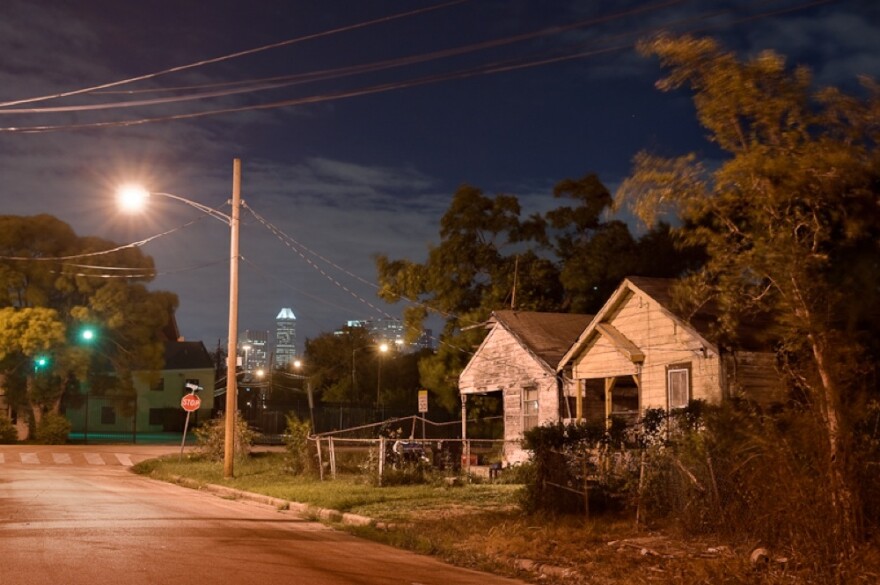The skyscrapers of downtown Houston are plainly visible from the city's Third Ward.
That's why developers have begun building upscale townhomes here. It's central-city living, with an easy commute downtown. To an outsider, that construction may look like signs of revival in a run-down neighborhood.
State Rep. Garnet Coleman doesn't see it that way at all.
Coleman represents the Third Ward, much of which was historically a black section of segregated Houston.
Riding through the neighborhood, Coleman points out landmarks like Emancipation Park, established in 1918 — a legacy of a time when black residents needed a place of their own to enjoy the outdoors.
To Coleman, the addition of new townhomes and small gated enclaves does not look like progress.
"You displace people by price," Coleman said, "because their incomes are historically lower, if you're African-American."
Listing recent challenges that historically black neighborhoods such as New York City's Harlem, Washington, D.C.'s Shaw neighborhood and southwest Atlanta have faced, Coleman said, "I don't want somebody playing Monopoly with my neighborhood. I just don't think that I can stand for that."
Generations of African-Americans — whether laborers or doctors, maids or professors — lived in this area's wooden shotgun houses, long narrow homes designed to carry a breeze from room to room.
Coleman, the son of a Third Ward physician, is convinced that most of the residents of the new townhomes are likely to be affluent and white. And he was not ready for the poorer residents of this area, many of them renters, to be squeezed out.

"I'm an egalitarian like everybody else," Coleman said, "and talking about the racial aspect of this, or saying this is born of race, is not something I feel absolutely comfortable with."
He noted that places like Philadelphia have cordoned off sections of the city, to protect Independence Hall's historical importance from being diluted by modern development.
"Why isn't culture historical?" Coleman asked.
Although many of the wooden houses now sag on their foundation blocks, and even more houses have been torn down, Coleman is determined to preserve a black neighborhood.
He is hardly the first person who struggled to keep a treasured neighborhood from changing too much. What's different is that Coleman may have found a way to succeed — by competing against developers for ownership of the Third Ward's land.
As for anyone who moves into neighborhoods like the Third Ward — and integrates what had formerly been a segregated area — Coleman says the main problem often stems from the new arrivals' attitude.
"Don't come into the community, renovate your house and then act like the people that have been living there forever have no standing," Coleman said.
"If somebody's going to move into the Third Ward — I don't care who you are — just become a part of it."
Copyright 2022 NPR. To see more, visit https://www.npr.org. 9(MDAzMjM2NDYzMDEyMzc1Njk5NjAxNzY3OQ001))







